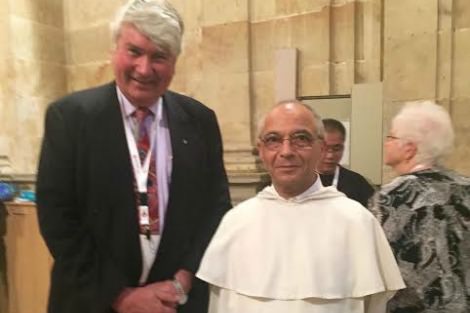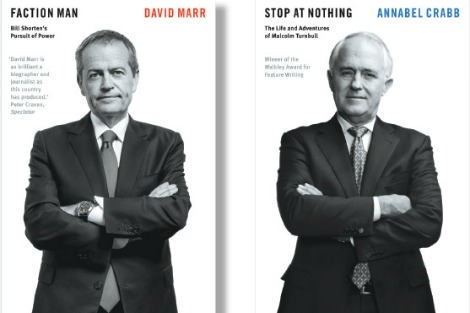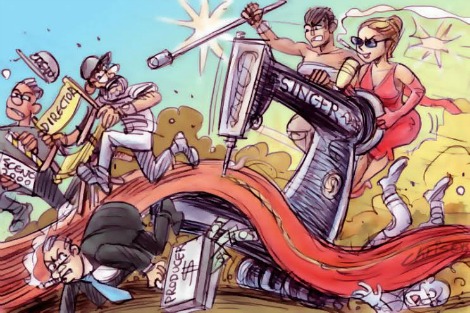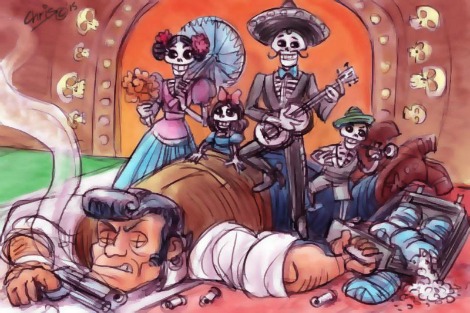Keywords: Comedy
There are more than 200 results, only the first 200 are displayed here.
-

INTERNATIONAL
- Frank Brennan
- 05 September 2016
1 Comment
'I am a Jesuit amongst Dominicans contemplating the Church's view of human rights. I am a human rights practitioner rather than a theologian, aware that human rights discourse is increasingly more universal and secular. Contemplating, preaching and enacting human rights in the 21st Century Church and World, I come asking two questions.' Frank Brennan's keynote presentation in Salamanca Spain to the International Congress of Dominicans in the Promotion and Defence of Human Rights: Past, Present, Future on the occasion of their 800th anniversary.
READ MORE
-

ARTS AND CULTURE
- Tim Kroenert
- 01 September 2016
There are hints of darkness behind the laughs. We learn Brent spent time in an institution some time after the original 'documentary' aired. He is shunned by his band members, who see themselves as reluctant employees rather than friends. What emerges is a rather affecting portrait of a man whose self-identity is at total odds with reality, and threatening to come crashing disastrously down.
READ MORE 
-

ARTS AND CULTURE
- Tim Kroenert
- 12 August 2016
1 Comment
There's a bagel character, coded as Jewish, and a lavash (Armenian flatbread), coded as Palestinian, who clash because they have to share an aisle. 'Isn't the aisle big enough for both of you?' asks Frank. In this and other ways the film points to the destructive power of religious belief corrupted by self- or socio-political interest. On the other hand it ignores the role religion can play in developing robust ethical thinking about the ways in which we can interact meaningfully with others and the world.
READ MORE 
-

INTERNATIONAL
- Fatima Measham
- 15 June 2016
45 Comments
At the epicentre of all this is a place where young, queer men and women had felt safe and free to be themselves. The dead are almost all black, brown, gay and working class. If, as Dr Cornel West has often said, justice is what love looks like in public, then injustice must be what hate looks like, and there is perhaps no greater injustice than murder. Mass murder is hatred realised in full grotesque proportion. This means is that the little things we do to validate hatred are not inconsequential.
READ MORE 
-

AUSTRALIA
- Andrew Hamilton
- 02 June 2016
8 Comments
David Marr describes Shorten at work in the claustrophobic world of the Labor factions and the unions where great haters abound. Annabel Crabb has a lighter touch, describing the career of Turnbull, with all its energy, intellectual and tactical brilliance, and victories with obvious enjoyment and in sunlit prose. The accounts raise two questions: Do the qualities of leaders matter much? And what insight do the leaders' stories provide into the likely achievements of the government they would lead?
READ MORE 
-

ARTS AND CULTURE
- Tim Kroenert
- 02 June 2016
2 Comments
It's the last chance for Ricky, who has been through a lot of other foster homes before winding up at Bella and Hector's. We don't know the detail of these experiences, but it is telling that the natural nurturer Bella's smallest gestures - cooking breakfast for Ricky, or putting a hot water bottle in his bed at night - are kindnesses like none he has ever known. It contrasts with the child welfare worker''s mantra of 'No child left behind', which on her lips becomes menacing, or at best a bureaucratic inanity.
READ MORE 
-

ARTS AND CULTURE
As is the time-honoured tradition of Hollywood PIs, Holland has long bound the wounds of some unresolved grief in alcohol and cynicism. Notwithstanding individual tastes that are by no means aligned with gender, this is the kind of movie that can tend to appeal to puerile male interests while diminishing respect for women. In this regard Shane Black, a mainstream filmmaker who is more self-aware than most, tries to have his cake and eat it too, by both drawing and subverting the objectifying male gaze.
READ MORE 
-

ARTS AND CULTURE
- Tim Kroenert
- 10 March 2016
6 Comments
When questioned about diversity in his films recently, Joel Coen replied: 'You don't sit down and say, "I'm going to write a story that involves four black people, three Jews, and a dog".' The answer is disingenuous at best. Filmmakers choose what stories to tell and how; with a few exceptions, the Coens tell stories about white men. Just as Quentin Tarantino ought to continue discussing the role violence and misogyny play in his films, the Coens should engage meaningfully with questions of diversity.
READ MORE 
-

MEDIA
- Rochelle Siemienowicz
- 13 January 2016
The success of the Australian comedy The Dressmaker is thrilling to those watching the local film industry. There's more to cheer in the fact the film is proudly female in both story and production. We're not as bad as Hollywood, but even in Australia, there are not enough films for women, about women and by women. Since the 1970s male directors have been responsible for more than 85 per cent of the feature films made. Why does it matter? Because women are more likely to tell stories about women.
READ MORE 
-

MEDIA
- Rochelle Siemienowicz
- 23 November 2015
10 Comments
The success of the Australian comedy The Dressmaker is thrilling to those watching the local film industry. There's more to cheer in the fact the film is proudly female in both story and production. We're not as bad as Hollywood, but even in Australia, there are not enough films for women, about women and by women. Since the 1970s male directors have been responsible for more than 85 per cent of the feature films made. Why does it matter? Because women are more likely to tell stories about women.
READ MORE 
-

INTERNATIONAL
- Garry Westmore
- 20 October 2015
3 Comments
Hollywood need not deny the violence cartels have perpetrated upon one another, members of the public, police and military. But to almost exclusively engage with Mexico in terms of this violence provides a badly limited perspective on that country. Hollywood does something similar when it goes to Africa and tells only stories of warlords and child soldiers. To do so brings nothing to the conversation, but merely exploits tragic situations for the benefit of laughs and action.
READ MORE 
-

- Frank Brennan
- 18 September 2015
Pope Francis's concerns are not narrowly dogmatic or pedagogical but universally pastoral. He knows that millions of people, including erstwhile Catholics, are now suspicious of or not helped by notions of tradition, authority, ritual and community when it comes to their own spiritual growth which is now more individual and eclectic. He wants to step beyond the Church's perceived lack of authenticity and its moral focus on individual matters, more often than not, sexual. He thinks the world is in a mess particularly with the state of the planet — climate change, loss of biodiversity and water shortages, but also with the oppression of the poor whose life basics are not assured by the operation of the free market, and with the clutter and violence of lives which are cheated the opportunity for interior peace. He is going to great pains to demystify his office. He wants all people of good will to emulate him and to be both joyful and troubled as they wrestle with the probl
READ MORE